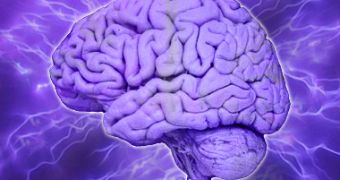Why does money make one feel powerful? The answer to this question can be found in that profit and power have the same brain nucleus: the striatum, that is already associated with reward. These are the results of brain-scanning researches, published in the journal Neuron, for the first time looking for a connection model between reward and reputation.
"This provides the biological basis of our everyday experience, that personal reputation is felt as reward," said Norihiro Sadato, a neuroscientist at the National Institute for Physiological Sciences in Aichi, Japan, lead author of one of the researches.
His team made brain scans of 19 subjects, as they were gambling. The subjects chose one of three cards appearing on a computer screen. They could gain, depending on the card, from 0 to 60 yen (50 cents). The game was repeated with no financial reward, to see how money affected brain activity. Later, the subjects were interviewed in front of a video camera so that their personality was assessed. The subjects were told they would be evaluated by others, but in fact they received fake evaluations.
In another series of tests, the subjects received praise or scorn instead of money: a flash across a computer screen displayed personal judgments ("modest," "trustworthy," and "selfish") next to the subject's image. The comparison of the brain scans revealed the same activity boost of the striatum when both profit and praise were used as stimuli. Praise is associated with social standing.
The other study was carried out by Andreas Meyer-Lindenberg, a neuroscientist at the Central Institute of Mental Health in Mannheim, Germany, together with a team from the National Institute of Mental Health in Bethesda, Maryland, US. "In monkeys and in humans, it makes a big difference whether hierarchy is static or dynamic. If the hierarchy is fixed forever, then it's good to be the top monkey," said Meyer-Lindenberg.
In case of dynamic hierarchies, high status creates high levels of stress. In this situation, the 24 subjects were actually tricked: they were told they would play a game against two others. The subjects had to tap a button when a dot was seen on a screen. They were told that who pressed the button first was the winner of that round and a practice round established each volunteer's rank. During the game, the subjects could see photos of the others and their rating. "We were looking to see what happens in the brain when you see someone who has been ascribed a lower or higher status than you," said Meyer-Lindenberg.
Results showed that the striatum of the subjects activated only in the case of higher rank counterparts. "The brain encodes social hierarchy by paying attention to superiors and not inferiors," added Meyer-Lindenberg.
In other tests, the subjects were told that completing a test would allow to get a higher rank in the hierarchical scale. Brain scans revealed that getting a higher status turned on a brain area connected to planning actions, while losing status activated a brain nucleus involved in emotional pain.

 14 DAY TRIAL //
14 DAY TRIAL //